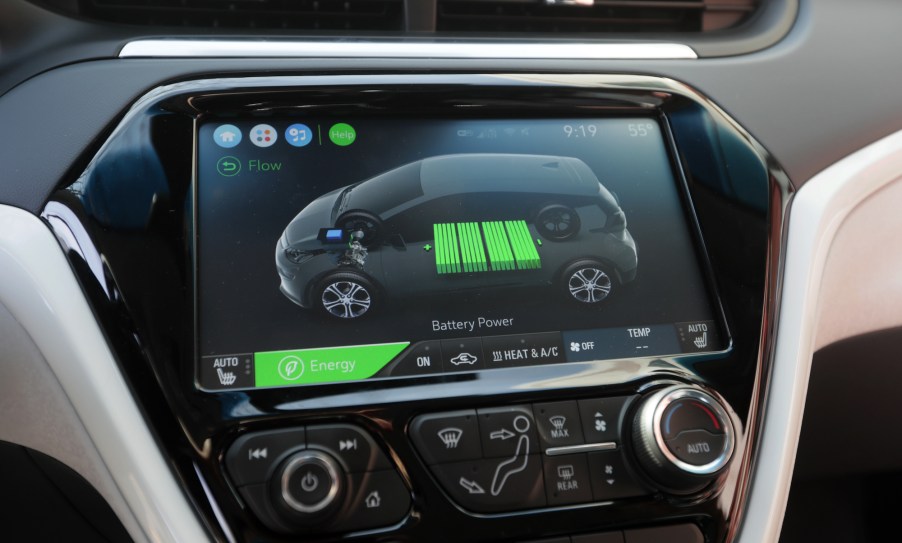
GM Announces an Important Detail About the Chevy Bolt EVs Recalled for Fire Risk
Last month, General Motors recalled Chevy Bolt EVs a second time for battery fire risk after two models burst into flames. In a move that shows GM is eager to end its battery problems, the automaker recently clarified which parts it will replace in the affected Bolt EVs and vowed to continue investigating the matter. Read on for more details about the recall and proposed fix.
Battery fire problems and the Chevy Bolt EV recall

Experts from LG and GM identified the presence of two rare manufacturing defects in the automaker’s lithium-ion battery modules as the cause of battery fires in Chevy Bolt EVs. GM also stated it might adjust its plan concerning the defective batteries if an additional investigation reveals a different remedy.
Also, Chevy Bolt EVs repaired under the previous recall will need to be fixed again under the new effort. The first recall, in November 2020, relied on a software update to ensure the Bolt’s maximum battery charge remained at 90%. But that was only a temporary fix.
Last month, two more Bolt EV fires prompted GM to issue another action. This time, the automaker warned owners not to leave their Chevy Bolt EVs charging overnight or parked inside. In fact, the two Bolts that caught fire had already been fixed under the first recall. To date, there are a total of nine reported Bolt EV fires in the U.S.
These incidents happened when the vehicles were plugged in and almost fully charged and involved a fire originating from the battery packs. GM transitioned to the “design level N2.1” cells in mid-2019 and has said none of the vehicles affected have such cells.
GM announces it will replace all battery modules, not just defective ones, in the Chevy Bolt EVs under recall
In a bid to mitigate the risk of fire, GM says it will replace all lithium-ion battery modules — not just defective modules — in thousands of 2017 to 2019 Bolt EVs under recall. The repairs will begin soon, and GM says it has begun mailing recall letters to the owners of affected 68,600 Bolt EVs globally.
The battery modules in the recalled cars include five lithium-ion modules, and GM will swap them with new lithium-ion battery modules. The current update is reportedly more specific than the one the automaker provided in July.
Then, the plan was to replace defective battery modules only, but now, the automaker intends to replace every module in the recalled Bolts, the Detroit Free Press reports.
An overview of the 2022 model
Although not much has changed for the 2022 Chevrolet Bolt EV since the current model year, it comes with some new tech and a new look, Chevrolet says.
A new front fascia replaces the playful, toy-like look of the EV’s predecessor for a more premium, grown-up look. Plus, the Bolt’s wide eyes are no more. Instead, it has narrow LED signature lights. Additionally, the space previously occupied by fog lights has the actual LED headlamps on it.
That, in turn, gives this compact EV an appearance of super-slim concept headlights in the day but also offers adequate illumination at night.
Inside, an all-new center console connects more naturally to the dashboard, which wasn’t the case with the previous floating design. Also, the 2022 Bolt EV has a dedicated button for the one-pedal driving mode, and a vertical bank of PRND buttons replaces the shift lever.
Starting at $31,000, the 2022 Chevy Bolt EV can travel 259 miles per charge according to EPA estimates, making it an ideal commuter car.
Note that later models — including 2020, 2021, 2022 Chevy Bolts — do not have any known battery fire issues. Of course, that is good news for anyone planning to buy the all-new EV.


